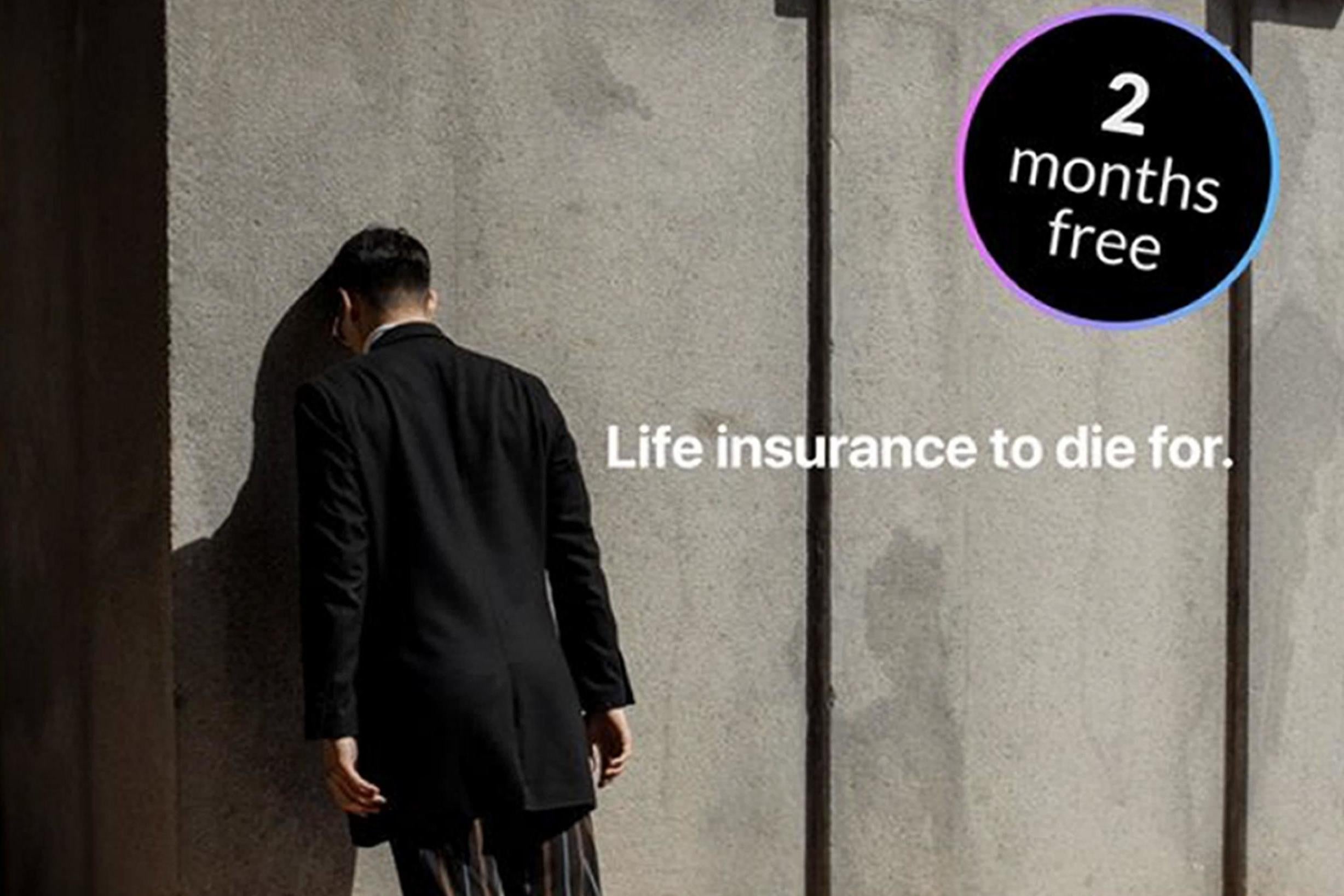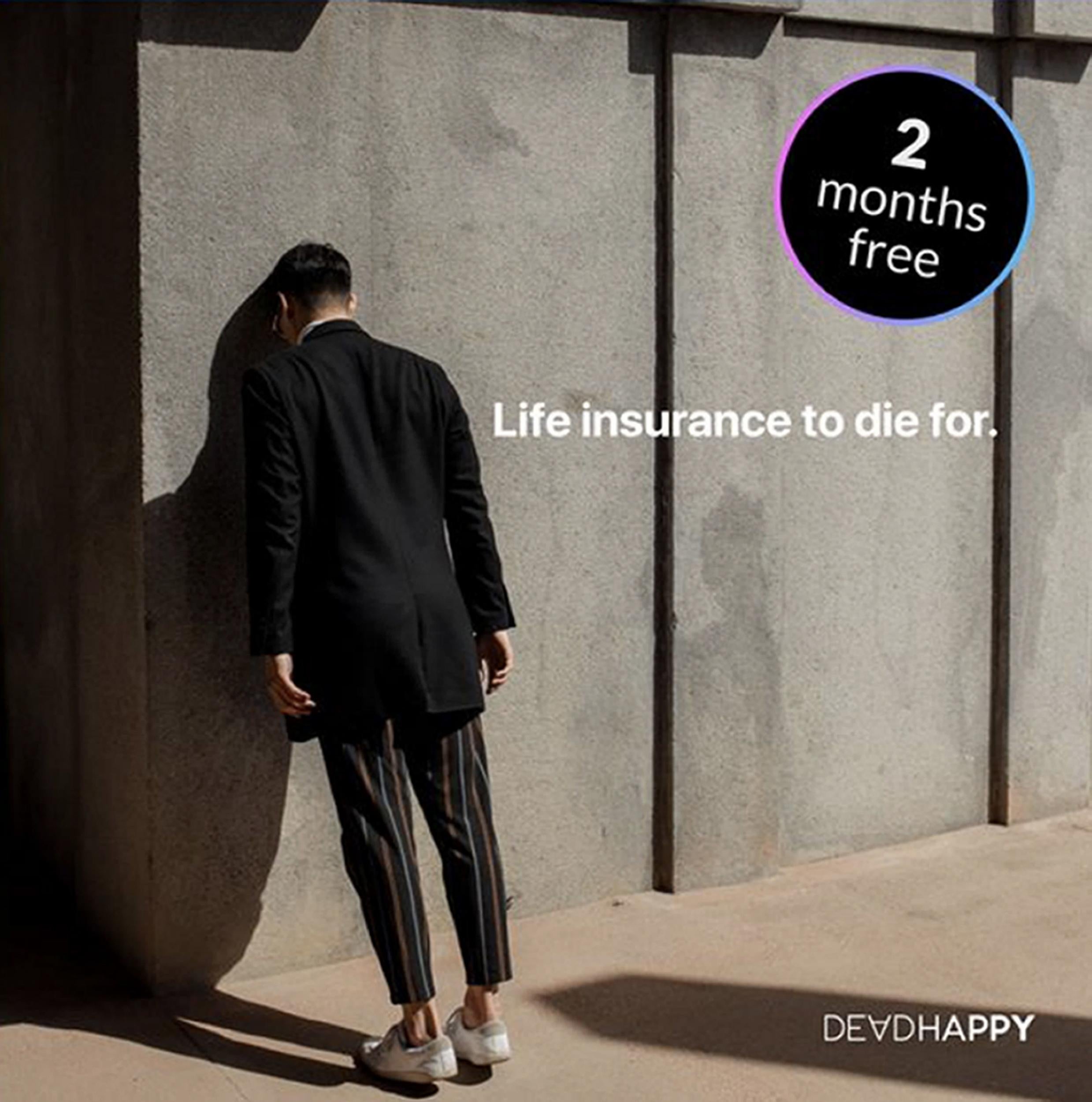'Offensive' life insurance advert banned for trivialising male suicide
Advertising Standards Authority said image 'was likely to cause serious offence'

Your support helps us to tell the story
From reproductive rights to climate change to Big Tech, The Independent is on the ground when the story is developing. Whether it's investigating the financials of Elon Musk's pro-Trump PAC or producing our latest documentary, 'The A Word', which shines a light on the American women fighting for reproductive rights, we know how important it is to parse out the facts from the messaging.
At such a critical moment in US history, we need reporters on the ground. Your donation allows us to keep sending journalists to speak to both sides of the story.
The Independent is trusted by Americans across the entire political spectrum. And unlike many other quality news outlets, we choose not to lock Americans out of our reporting and analysis with paywalls. We believe quality journalism should be available to everyone, paid for by those who can afford it.
Your support makes all the difference.An advert featuring an image of a man leaning his head against a wall and the strapline “Life insurance to die for” has been banned for trivialising suicide.
Dead Happy, a UK-based startup that offers life insurance and aims to remove the taboo surrounding death, unveiled the advert as part of a new social media campaign in September 2019.
Alongside the image of the young man, the paid-for Facebook post included a depiction of a laughing skull, a two months’ free promotional discount code “SKULLMAN” and text which read: “Sign up for the easiest life insurance money can buy”.
A social media user complained to the Advertising Standards Authority (ASA) stating that the advert alluded to depression and male youth suicide, and described it as “irresponsible” and “offensive”.
In response to the accusations, Dead Happy said it takes mental health “very seriously”, adding that the advert was part of a wider campaign that used images designed to stop viewers scrolling past them.

The company said the image of the man was found in an internet photograph library which had been viewed and downloaded many times, but claimed there was no connection to depression or suicide.
Despite Dead Happy’s justification, the consumer complaint was upheld by the ASA which said it was “concerned” about the image of the man, who stood alone with his back to the audience.
The ASA said that together, the image, references to skulls and strapline “trivialised the issue of suicide”.
“We considered that, by trivialising the issue of suicide and alluding to it to promote life insurance, the ad was likely to cause serious offence to some people, including those who had been personally affected by suicide, and was irresponsible,” the ASA said.
The organisation has ruled that the advert must not appear again.
Last week, the ASA also banned a Deliveroo television advert after it became one of the most complained-about commercials of the year.
The ASA said the advert mislead customers as it implied deliveries could be made from multiple restaurants in a single package without incurring additional charges.
The commercial, which first aired in September, received 300 complaints from viewers, making it the third-most complained-about advert of 2019.
Join our commenting forum
Join thought-provoking conversations, follow other Independent readers and see their replies
Comments